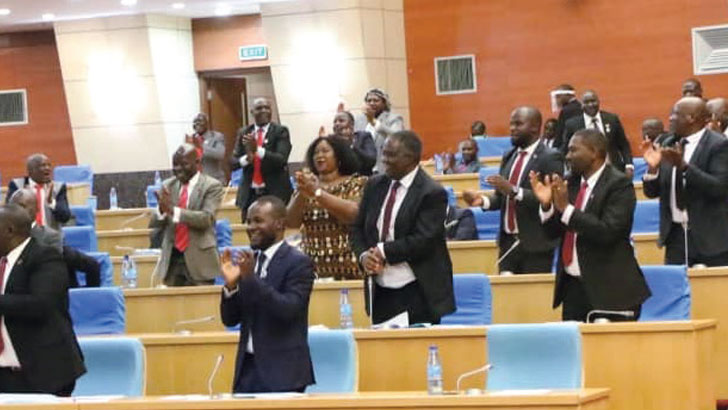Budget faces reality check
When Parliament convenes for the Mid-Year Budget Review Meeting from November 13, it will mark a reality check for the K3.87 trillion 2023/24 National Budget riddled with widening deficit and reports of over-expenditure in some votes.
By press time at 9pm, new Minister of Finance and Economic Affairs Simplex Chithyola Banda was yet to respond to The Nation questionnaire on how he intends to salvage the national budget feared to be off-track, but United Democratic Front leader in the House Ned Poya said they expect him to make expenditure cuts on some lines as revenue collection appears not to match projected expenses.
On the other hand, Public Accounts Committee (PAC) of Parliament chairperson Mark Botomani said they expect to hear from the new minister how he plans to instil fiscal discipline in government ministries, departments and agencies (MDAs).
They were reacting to a communication from Parliament Secretariat that the National Assembly will meet from November 13 to December 8 2023 for the Mid-term Budget Review Meeting, the third meeting of the 50th Session.
In an interview, Poya said UDF was keen to see deliberations during the forthcoming meeting focusing on the three major challenges which have serious implications on the economy.
He said his party also hopes that in the course of implementing the current budget, the International Monetary Fund (IMF) will approve the Extended Credit Facility (ECF) to help stabilise foreign exchange challenges.

Said Poya: “Forex has affected fuel supply which leads to high cost of commodities and services. We think that if IMF can help, it will make a huge a difference. We know that this is not sustainable but since we are not exporting enough to generate forex, the IMF programme will be very helpful.”
He said he also expects an explanation on the policy shift in the focus of the Affordable Inputs Programme (AIP) to assure the vulnerable households that have been left out on the beneficiaries’ list that they will be fully supported.
In a separate interview, Botomani said: “Previous audit reports which we have dealt with at committee level, reveal high levels of indiscipline on public expenditure despite having clear guidelines in the PFMA [Public Finance Management Act] and other relevant instruments.
“So, although MDAs will be coming to Parliament, asking for increases in their respective votes, but this has to come with commitment to spend according to existing rules.”
Malawi University of Business and Applied Science associate professor of economics Betchani Tchereni said the mid-term review is critical, considering the high inflation which makes it difficult for Capital Hill to deliver on all its assumptions at the launch of the current fiscal year.
He said Chithyola Banda will have to make tough decisions to either significantly cut down on some expenditure or raise more revenue if they are to stick to all planned deliverables.
Said Tchereni: “The figures we agreed for the budget [K3.9 trillion], if we still want to achieve the same delivery as we agreed, it means that we have to look for more money. With inflation, it means that prices of commodities have gone up…
“The minister will have to look at some sectors that are not so productive and remove them. We can remove a lot of travel, for example, and freeze procurement of new vehicles.”
However, in the fiscal plan that rolled out on April 1, Treasury projected a fiscal deficit of K1.3 trillion, an equivalent of one-third of the K3.87 trillion 2023/24 National Budget.
At K1.3 trillion, the fiscal deficit is 8.7 percent of the country’s gross domestic product and below the recommended threshold of three percent.
Treasury further projected tax revenue at K2.13 trillion and non-tax revenue at K114.34 billion in this fiscal year that ends of March 31 2024.
Meanwhile, the review is coming at a time inflation is at 27.8 percent as of September against a projection that it would decrease to around 18 percent by end of year.





